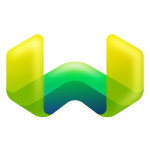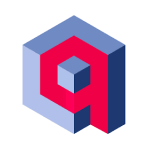MongoDB Atlas vs. KDB.AI
Compare MongoDB Atlas vs. KDB.AI for vector search workloads. We want you to choose the most suitable vector database for your use case, even if it’s not us.
As AI technologies evolve, vector similarity search has become essential for powering modern AI applications like retrieval-augmented generation (RAG), semantic search, and recommendation engines. There are various vector search solutions available, including purpose-built vector databases, vector search libraries, and traditional databases with vector search as an add-on. Selecting the right solution is crucial for the success of your AI applications.
MongoDB Atlas and KDB.AI both bring unique strengths to vector search workloads, each with its own capabilities and limitations. The best choice depends on your specific use case and requirements. In the following sections, we’ll compare both databases regarding functionality, scalability, and availability, helping you determine the most suitable option for your needs—even if it’s not us.
MongoDB Atlas vs. KDB.AI at a Glance
No. It is a NoSQL database service with vector search as an add-on.
No. It is a time series database service with vector search is an add-on.
Proprietary License
Proprietary License
N/A
N/A
Cloud
On-prem, Cloud
MongoDB Atlas overview
MongoDB Atlas is a cloud-native database service offering MongoDB’s flexible, document-oriented data model with built-in support for scalability and operational management. Its vector search capabilities, introduced via Atlas Search, enable developers to perform similarity queries alongside structured and unstructured data operations, making it a versatile option for modern AI and search applications.
KDB.AI overview
KDB.AI is a high-performance time-series and vector database tailored for AI and machine learning applications. It combines its strength in time-series data processing with vector search capabilities, enabling real-time analytics and retrieval for complex datasets. KDB.ai is particularly well-suited for use cases involving temporal and high-dimensional data.
Benchmarking MongoDB Atlas and KDB.AI on your own
VectorDBBench is an open-source benchmarking tool designed for users who require high-performance data storage and retrieval systems, particularly vector databases. This tool allows users to test and compare the performance of different vector database systems using their own datasets and determine the most suitable one for their use cases. Using VectorDBBench, users can make informed decisions based on the actual vector database performance rather than relying on marketing claims or anecdotal evidence.
VectorDBBench is written in Python and licensed under the MIT open-source license, meaning anyone can freely use, modify, and distribute it. The tool is actively maintained by a community of developers committed to improving its features and performance.
Check out the VectorDBBench Leaderboard for a quick look at the performance of mainstream vector databases.
The Definitive Guide to Choosing a Vector Database
Overwhelmed by all the options? Learn key features to look for & how to evaluate with your own data. Choose with confidence.














